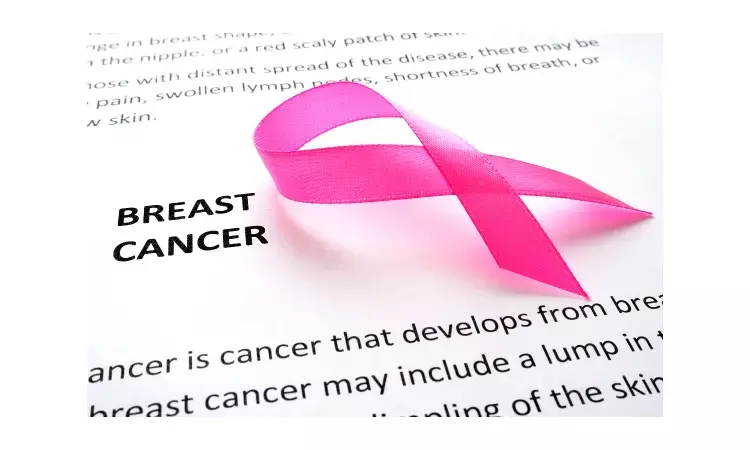- Home
- Medical news & Guidelines
- Anesthesiology
- Cardiology and CTVS
- Critical Care
- Dentistry
- Dermatology
- Diabetes and Endocrinology
- ENT
- Gastroenterology
- Medicine
- Nephrology
- Neurology
- Obstretics-Gynaecology
- Oncology
- Ophthalmology
- Orthopaedics
- Pediatrics-Neonatology
- Psychiatry
- Pulmonology
- Radiology
- Surgery
- Urology
- Laboratory Medicine
- Diet
- Nursing
- Paramedical
- Physiotherapy
- Health news
- Fact Check
- Bone Health Fact Check
- Brain Health Fact Check
- Cancer Related Fact Check
- Child Care Fact Check
- Dental and oral health fact check
- Diabetes and metabolic health fact check
- Diet and Nutrition Fact Check
- Eye and ENT Care Fact Check
- Fitness fact check
- Gut health fact check
- Heart health fact check
- Kidney health fact check
- Medical education fact check
- Men's health fact check
- Respiratory fact check
- Skin and hair care fact check
- Vaccine and Immunization fact check
- Women's health fact check
- AYUSH
- State News
- Andaman and Nicobar Islands
- Andhra Pradesh
- Arunachal Pradesh
- Assam
- Bihar
- Chandigarh
- Chattisgarh
- Dadra and Nagar Haveli
- Daman and Diu
- Delhi
- Goa
- Gujarat
- Haryana
- Himachal Pradesh
- Jammu & Kashmir
- Jharkhand
- Karnataka
- Kerala
- Ladakh
- Lakshadweep
- Madhya Pradesh
- Maharashtra
- Manipur
- Meghalaya
- Mizoram
- Nagaland
- Odisha
- Puducherry
- Punjab
- Rajasthan
- Sikkim
- Tamil Nadu
- Telangana
- Tripura
- Uttar Pradesh
- Uttrakhand
- West Bengal
- Medical Education
- Industry
Senitel node biopsy not a reliable way to diagnose breast cancer

In 2020, there were 2.3 million women diagnosed with breast cancer and 685 000 deaths globally. As of the end of 2020, there were 7.8 million women alive who were diagnosed with breast cancer in the past 5 years, making it the world's most prevalent cancer.
Sentinel node biopsy has some associated morbidity and is an additional procedure in the operating room. However, it may not provide the necessary information for decision-making about adjuvant chemotherapy, Hispanic women were less likely to have a 21-gene recurrence score rendering them eligible for chemotherapy compared to Black and Asian women.
Breast cancer diagnosis by sentinel node biopsy may not be helpful for adjuvant chemotherapy decisions in some older women with breast cancer, according to a new research presented at the American Society of Breast Surgeons annual meeting, 2022.
Study aimed to assess the correlation between nodal status and the Oncotype Dx 21-gene recurrence score, which reflects a tumor's individual biology and is widely used to aid decisions about adjuvant chemotherapy.
Study used the National Cancer Database, they analyzed 28,338 women aged 70 and older who were treated for HR-positive, HER2-negative, AJCC clinical stage T1-T2 breast cancers between 2010 and 2018.
The results of the study were
• A total of 5,640 women (19.9%) were node positive and 22,698 (80.1%) were node negative.
• Overall, the proportion of women with a 21-gene recurrence score of 26 or greater, which typically indicates that chemotherapy will be beneficial, was similar in node negative and node positive women (13.1% and 14.7%, respectively).
• For both node negative and positive women, grade 3 tumors were associated most strongly with a high 21-gene recurrence score, followed by negative progesterone receptor status.
• Additionally, women with tumors greater than 2 cm and those covered by Medicaid were also more likely to have a cancer recurrence score greater than or equal to 26.
Researchers concluded that "Sentinel node biopsy for women older than age 70 with hormone receptor positive breast cancer is not really helpful for making adjuvant chemotherapy decisions. While eliminating sentinel node biopsy may seem counter-intuitive to some patients, it is not likely to have a major impact on their outcomes".
Reference: https://bit.ly/3E8sQ9W American Society of Breast Surgeons annual meeting, held April 6-10, 2022.
Medical Dialogues consists of a team of passionate medical/scientific writers, led by doctors and healthcare researchers. Our team efforts to bring you updated and timely news about the important happenings of the medical and healthcare sector. Our editorial team can be reached at editorial@medicaldialogues.in.
Dr Kamal Kant Kohli-MBBS, DTCD- a chest specialist with more than 30 years of practice and a flair for writing clinical articles, Dr Kamal Kant Kohli joined Medical Dialogues as a Chief Editor of Medical News. Besides writing articles, as an editor, he proofreads and verifies all the medical content published on Medical Dialogues including those coming from journals, studies,medical conferences,guidelines etc. Email: drkohli@medicaldialogues.in. Contact no. 011-43720751


